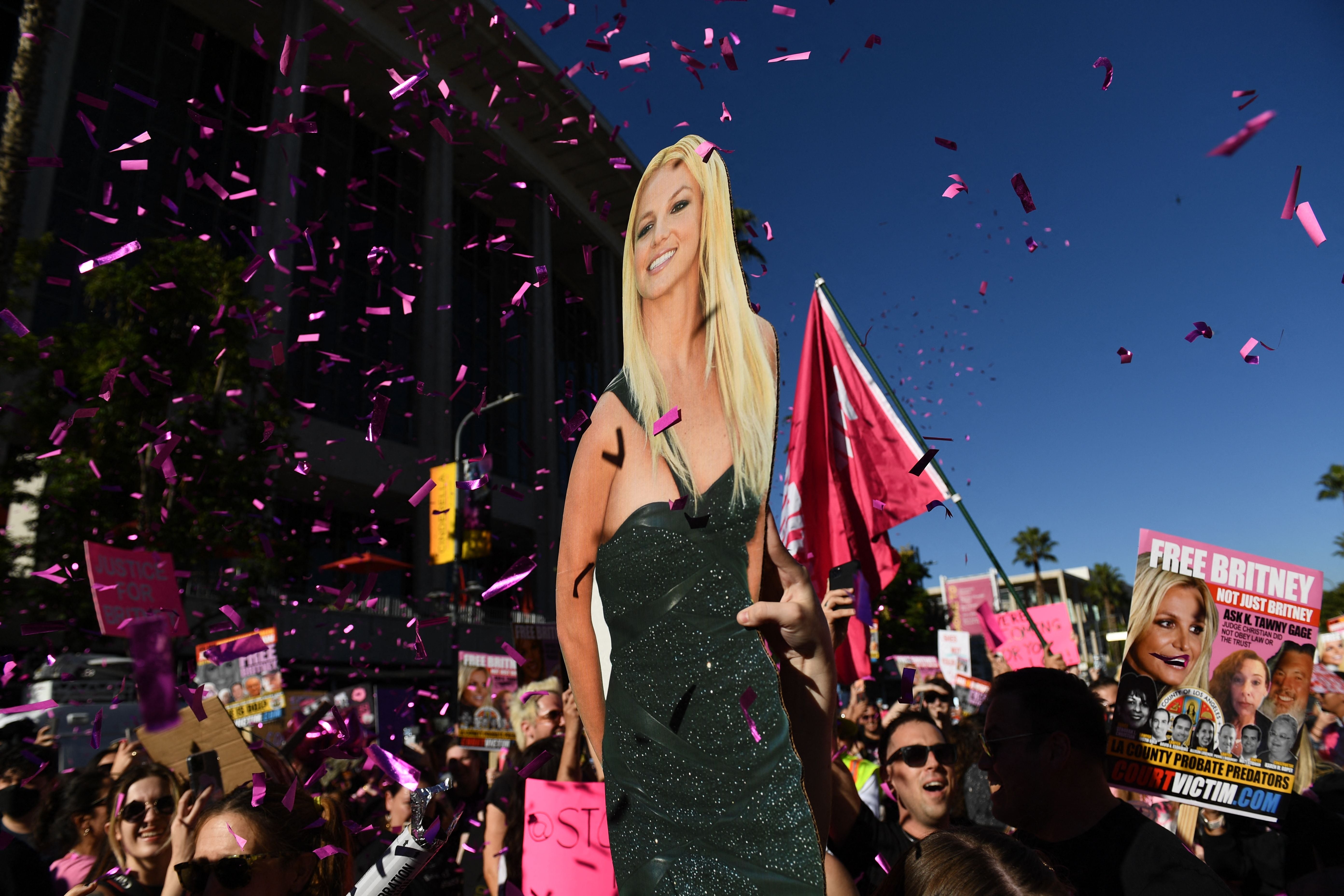Britney is finally free, but what about disabled people who aren’t famous?
The moment Britney was placed under that conservatorship, she was considered disabled by the law, allowing her to be dehumanised and commodified


Your support helps us to tell the story
From reproductive rights to climate change to Big Tech, The Independent is on the ground when the story is developing. Whether it's investigating the financials of Elon Musk's pro-Trump PAC or producing our latest documentary, 'The A Word', which shines a light on the American women fighting for reproductive rights, we know how important it is to parse out the facts from the messaging.
At such a critical moment in US history, we need reporters on the ground. Your donation allows us to keep sending journalists to speak to both sides of the story.
The Independent is trusted by Americans across the entire political spectrum. And unlike many other quality news outlets, we choose not to lock Americans out of our reporting and analysis with paywalls. We believe quality journalism should be available to everyone, paid for by those who can afford it.
Your support makes all the difference.Since 2008, Britney Spears has been under a conservatorship, a legal arrangement through which a third party is given the power to make decisions for those “who cannot care for himself or herself or manage his or her own finances”. On 12 November, that conservatorship finally ended.
Britney Spears recently stated that her father, Jamie Spears, who instigated the emergency conservatorship which lasted for 13 years, relished the arrangement. She said: “He loved the control to hurt his own daughter, 100,000 per cent. He loved it.”
Ever since it began, the nature of the conservatorship has been scrutinised. The #FreeBritney movement has developed and grown. I was, initially, amongst the people who did not believe Britney Spears could be treated in this way or that she could have her rights diminished. It seemed impossible that this could happen to someone with so much power. She’s Britney, after all – less a person, more an ideal.
But this mindset is part of the problem, because we don’t see the person. We just know the brand, and this is something I was reminded of when Britney stated that: “My precious body, who has worked for my dad for the past f***ing 13 years, trying to be so good and pretty... so perfect... when he works me so hard”.
It’s now clear that although Britney is a privileged member of the disabled community, that privilege didn’t protect her from ableism or sexism. Of course, she is a white woman who is conventionally attractive and has vast wealth. Still, she is not alone in the fact that she has had some of the most fundamental rights and privileges diminished or entirely removed.
In court, she outlined some of the cruel restrictions she’s been subjected to, explaining how she was forced to wear an IUD to prevent her from having a child, and her conservators won’t let her remove it. “I want to be able to get married and have a baby,” she said. “I was told with the conservatorship; I was not able to get married and have a baby.” Britney took the stand and talked about how she felt she wasn’t “heard on any level”.
It is a feeling that myself and many other disabled people are familiar with. We know that because of our disabilities, we are deemed to have less value. Our capabilities are called into question, we have medical and financial decisions made for us without consideration, and we are routinely infantilised.
The moment Britney was placed under that conservatorship, she was considered disabled by the law, allowing her to be dehumanised and commodified. Even when the conservatorship was in place, she was expected to work to an unrelenting schedule.
To keep up to speed with all the latest opinions and comment sign up to our free weekly Voices Dispatches newsletter by clicking here
I hope, now Britney has been freed, that she can live the life she wants. It’s about her choice, as it always should have been. I also hope that it makes people think about those who don’t have her privilege, fame and influence. Those who don’t have an army of people ready to dissect messages and look for hidden clues, people who are prepared to fight until #FreeBritney becomes #FreedBritney.
This should teach us all a lesson about how certain celebrities, usually young women, are treated. There’s plenty of sympathy towards Britney now, but we can’t forget the events that led her to struggling so publicly.
Britney Spears is a powerful reminder of what can happen when a person’s control over their life is removed. We must keep fighting as a community to have our rights respected, and I hope we remember that as soon as Britney was viewed as disabled, she was stripped of her autonomy. If it can happen to Britney, it can happen to anyone. “She’s lying. She’s got everything. She’s Britney Spears.” No, she isn’t, and no, she hasn’t.
Join our commenting forum
Join thought-provoking conversations, follow other Independent readers and see their replies
Comments